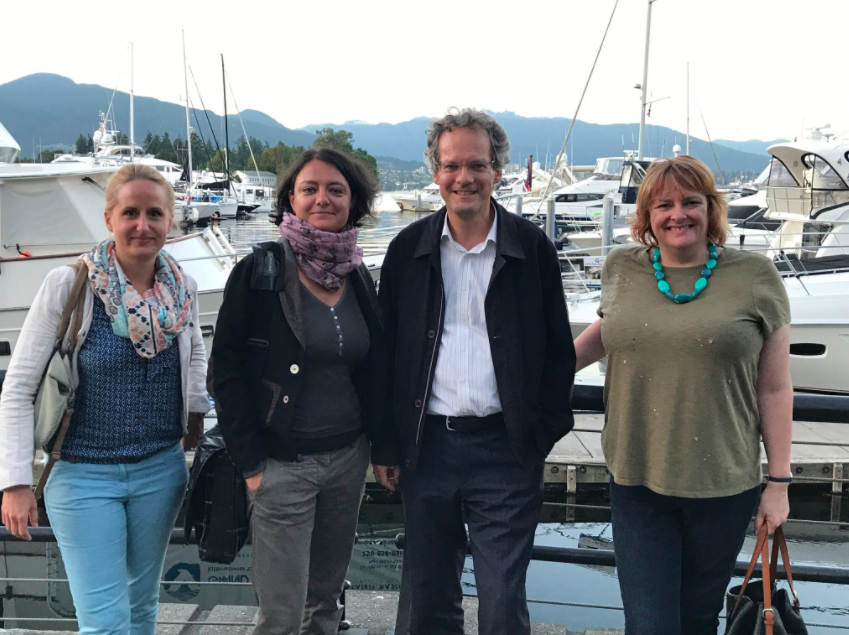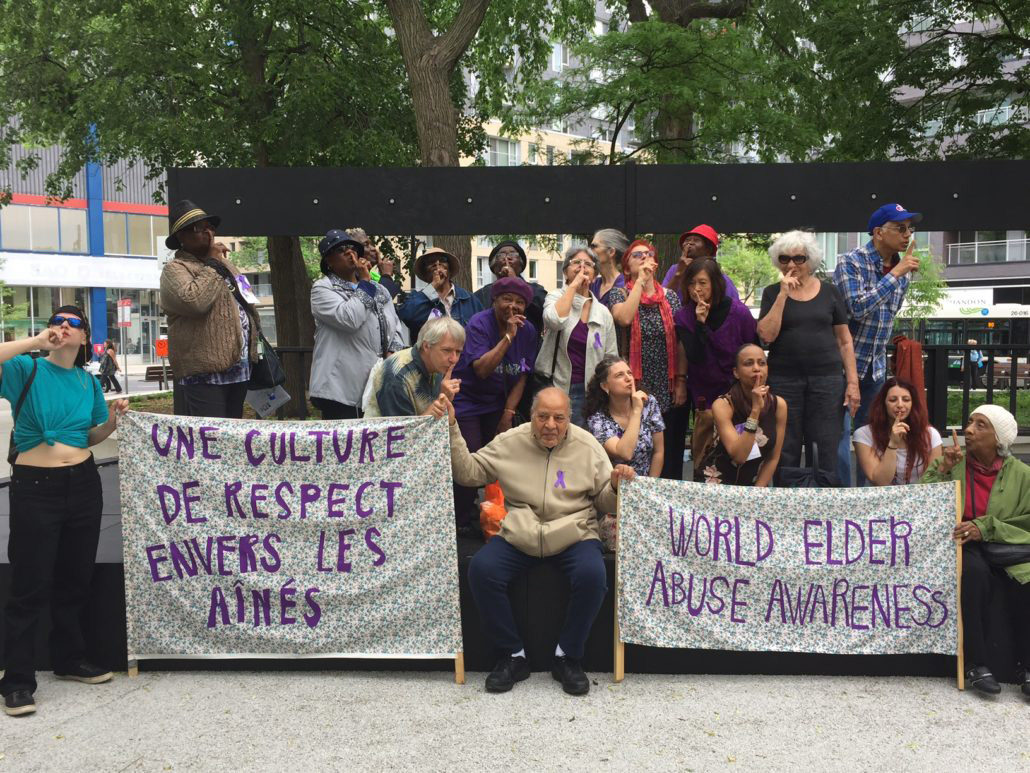ACT represented in three panels at the Human Computer Interaction conference in Vancouver

Pictured: ACT members Barbara Ratzenböck, Francesca Comunello, Eugène Loos and Wendy Martin in Vancouver, Canada.
Eugène Loos launched the Intergenerational Gaming Platform at the Human Computer Interaction conference held in July in Vancouver, Canada. He also organized three panels: New media in the life of older people, Digital gaming among older populations, Intergenerational use of new media. The panels were presented as part of the stream on Human Aspects of IT for the Aged Population, and involved various ACT researchers, including Francesca Comunello, Benjamin Lille, Mireia Fernández-Ardèvol, Wendy Martin, Simone Mulargia, Barbara Ratzenböck, Margarida Romero, Andrea Rosales and Eugène Loos.

Eugène Loos, Professor at the University of Amsterdam, Senior Lecturer Utrecht University and ACT co-applicant, presents “Exergaming: Meaningful Play for Older Adults?”

Francesca Comunello, ACT researcher, presents “My grandpa and I ‘gotta catch ‘em all.’ A research design on intergenerational gaming focusing on Pokémon Go”

Benjamin Lille, graduate student at Université de Laval and ACT graduate student, presents “Intergenerational Techno-Creative Activities in a Library Fablab”

Barbara Ratzenböck, PhD student at the University of Graz and ACT graduate student, presents “Everyday Life Interactions of Women 60+ with ICTs: Creations of Meaning and Negotiations of Identity”

Wendy Martin, Lecturer at Brunel University and ACT co-applicant, presents “Visual Representations of Digital Connectivity in Everyday Life”





